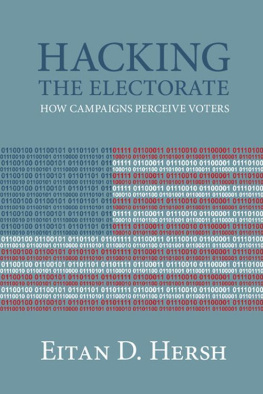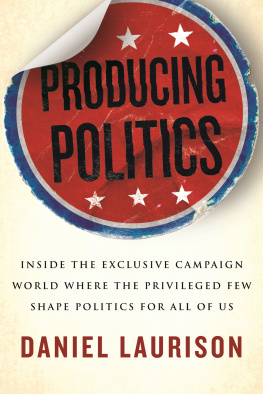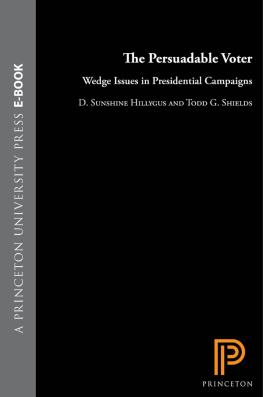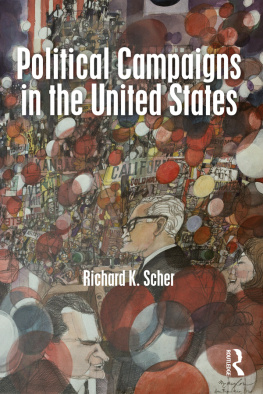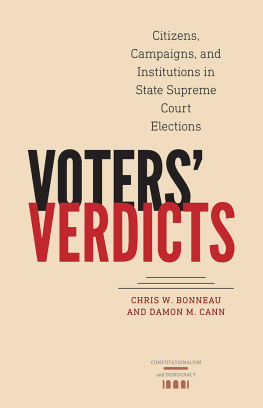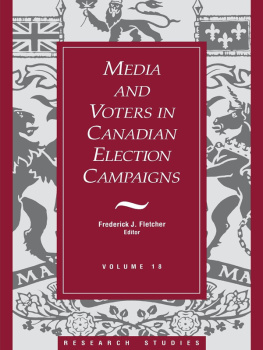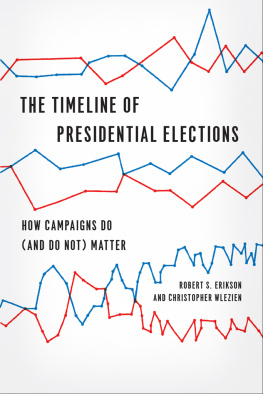Hacking the Electorate
How Campaigns Perceive Voters
Hacking the Electorate is the most comprehensive study to date about the consequences of campaigns using microtargeting databases to mobilize voters in elections. Eitan D. Hersh traces the path from data to strategy to outcomes. Hersh argues that most of what campaigns know about voters comes from a core set of public records. States vary in the kinds of records they collect from voters and these variations in data across the country mean that campaigns perceive voters differently in different areas. Consequently, the strategies of campaigns and the coalitions of voters who are mobilized fluctuate across the country because of the different ways campaigns perceive the electorate. Data policies influence campaigns, voters, and, increasingly, public officials.
Eitan D. Hersh is an assistant professor of political science at Yale University. His research has been published in journals such as the American Political Science Review and the Proceedings of the National Academy of Sciences, as well as featured in news outlets such as PBS NewsHour and the New York Times. Hersh has served as an expert consultant in several election-related court cases.
In honor of my parents
Kenneth M. Hersh and Leah Ehrenhaus-Hersh
Hacking the Electorate
How Campaigns Perceive Voters
EITAN D. HERSHYale University

32 Avenue of the Americas, New York, NY 10013-2473, USA
Cambridge University Press is part of the University of Cambridge.
It furthers the Universitys mission by disseminating knowledge in the pursuit of education, learning, and research at the highest international levels of excellence.
www.cambridge.org
Information on this title: www.cambridge.org/9781107501164
Eitan D. Hersh 2015
This publication is in copyright. Subject to statutory exception and to the provisions of relevant collective licensing agreements, no reproduction of any part may take place without the written permission of Cambridge University Press.
First published 2015
Printed in the United States of America
A catalog record for this publication is available from the British Library.
Library of Congress Cataloging in Publication Data
Hersh, Eitan D.
Hacking the electorate : how campaigns perceive voters / Eitan D. Hersh.
pages cm
Includes bibliographical references and index.
ISBN 978-1-107-10289-7 (hardback) ISBN 978-1-107-50116-4 (paperback)
1. Campaign management United States. 2. Political campaigns United States. 3. Voting United States. I. Title.
JK2281.H46 2015
324.70973dc23 2014046688
ISBN 978-1-107-10289-7 Hardback
ISBN 978-1-107-50116-4 Paperback
Cambridge University Press has no responsibility for the persistence or accuracy of URLs for external or third-party Internet Web sites referred to in this publication and does not guarantee that any content on such Web sites is, or will remain, accurate or appropriate.
Contents
1.1
1.2
1.3
1.4
1.5
2.1
2.2
2.3
2.4
2.5
3.1
3.2
3.3
3.4
3.5
4.1
4.2
4.3
4.4
5.1
5.2
5.3
5.4
5.5
5.6
6.1
6.2
6.3
6.4
6.5
7.1
7.2
7.3
7.4
8.1
8.2
8.3
9.1
9.2
9.3
Acknowledgments
The research contained in this volume began in 2009. In the six years since, Ihave benefited from a community of scholars without which I could not havecompleted this book. At its best, scholarly research is conducted not insolitary confinement but in a vibrant ecosystem in which students inspire,colleagues encourage, mentors nudge, and reviewers critique. I havebeen blessed with a community that has helped me in inspiration,encouragement, nudges, and critiques. I hope to primarily convey mygratitude through actions by helping students and colleagues asthey have helped me. But I also wish to acknowledge some of theindividuals who were particularly important in making this bookpossible.
I first thank my teachers. Stephen Ansolabehere served as my graduateadviser. For his creativity, knowledge, friendship, and generosity I amoverwhelmingly grateful. Claudine Gay and Gary King, who servedalong with Steve on my dissertation committee, offered terrific adviceand encouragement in the early stages of this project. Ken Shepslesengagement with my studies was also critical to this projects earlydevelopment.
In addition to my teachers at Harvard, I have acquired teachersacross the discipline who helped make this project a success. BarryBurden, Robert Erikson, Rick Hasen, Sunshine Hillygus, Brian Schaffner,John Sides, and Lynn Vavreck participated in a book conference in2013. The book changed substantially in light of their comments andsuggestions. I especially thank Sunshine, Brian, John, and Lynn for readingmultiple versions of the manuscript. David Mayhew and Chris Mannalso read full drafts of the manuscript and offered very insightfulfeedback.
I thank my graduate school colleagues, especially Katie Levine Einstein,Anthony Fowler, Bernard Fraga, Justin Grimmer, Elena Llaudet, ClaytonNall, and Joe Williams. I thank my colleagues on the Yale faculty, especiallyPeter Aronow, Deborah Beim, John Bullock, Dan Butler, Sam DeCanio,Alan Gerber, Jacob Hacker, John Henderson, Greg Huber, DavidMayhew, Ellie Powell, Kelly Rader, Stephen Skowronek, Steven Smith,Susan Stokes, and Vesla Weaver. And I thank colleagues around thecountry who have been generous with their time and ideas, especiallyDavid Broockman, Ryan Enos, Peter Ganong, Seth Hill, MatthewHindman, Daniel Hopkins, Gabrial Lenz, Chris Mann, Marc Meredith,Markus Prior, Todd Rogers, Jim Snyder, and Charles Stewart. Myconversations with all of these individuals throughout the last six years havenot only made my research better but they have also made this jobfun.
For research support, I thank the Center for the Study of AmericanPolitics and the Institution for Social and Policy Studies (ISPS) at Yale. Ithank directors Alan Gerber and Jacob Hacker for their generoussupport. For funding for the early stage of this project, I thank theCenter for American Political Studies at Harvard as well as StephenAnsolabehere. For hosting me during a year of research leave, I thankthe departments of political science at Boston College and BostonUniversity. For research assistance, I thank Nate Blevins, Ivan Fan, andespecially Michael Young, all terrific graduates of Yale College. Ialso thank Pam Lamonaca and Pam Greene at ISPS for all theirhelp.
Many campaign practitioners helped make this research possible. Iespecially thank Laura Quinn and Bob Blaemire at Catalist, Jim St.Georgeat NGP VAN, and Ethan Roeder on the Obama campaign for their help.I also thank the Analyst Institute for its role in fostering dialoguebetween political scientists and political practitioners. And I thankthe two dozen Republican and Democratic campaign operatives Iinterviewed whose anonymity requires my gratitude to be transmittedprivately.

